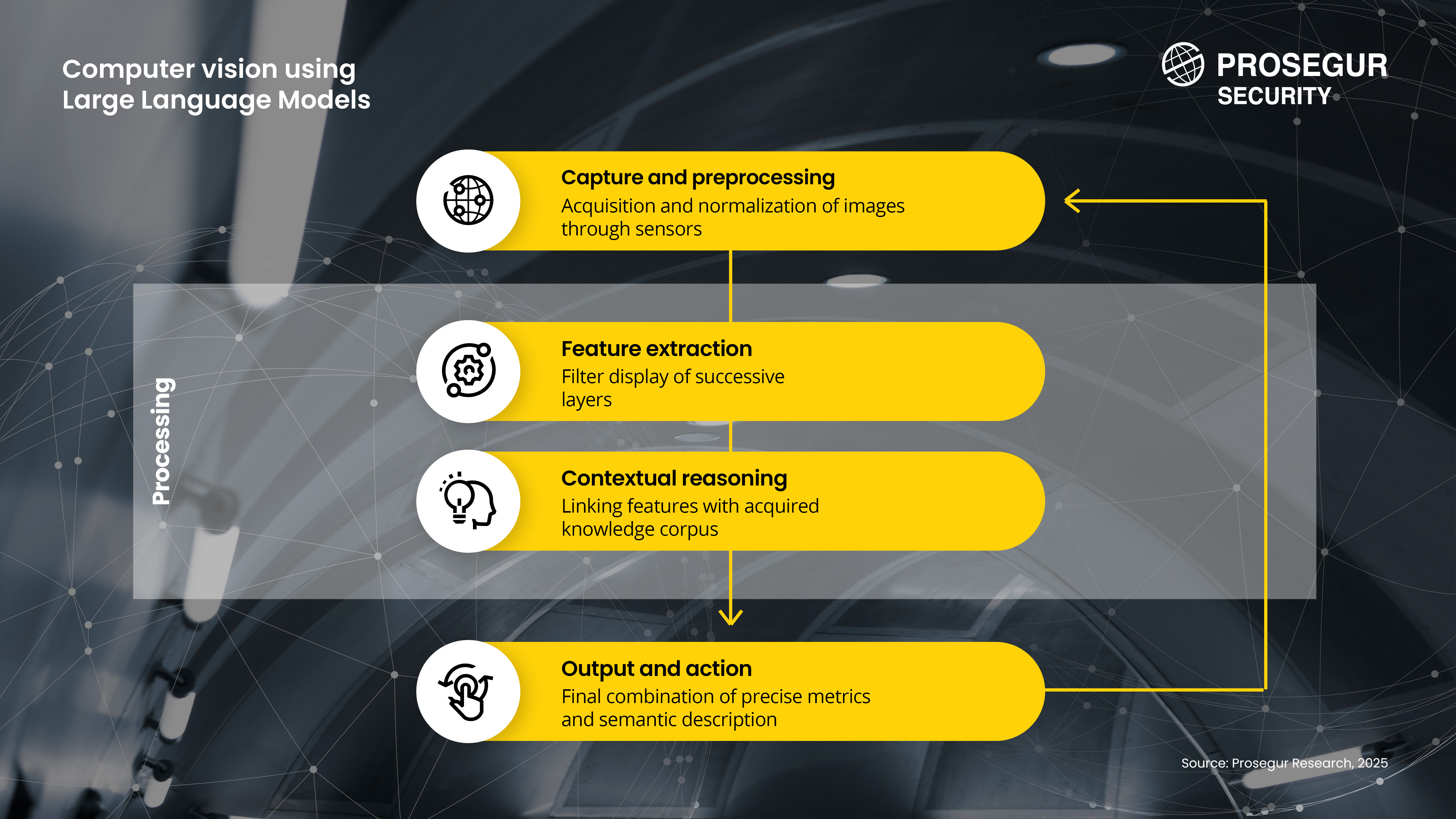Computer Vision engineering: what machines can see
11th of July 2025
Computer vision is the ability of a machine to interpret and understand the visual world based on different algorithmic models to extract meaning. Essentially, this technology aims to convert images —sets of pixels with no inherent meaning— into understandable and useful information. However, it's not enough to simply recognize an object: you have to understand what it is, what it's doing, and how it relates to the environment. Therefore, computer vision is not just about "seeing," but also about processing and interpreting what is being detected. This distinction is key to assessing its transformative potential: we are not witnessing a simple evolution of security cameras, but rather the birth of systems capable of supporting and executing real-time decisions based on visual stimuli, anticipating risks, and operating autonomously in complex environments.ere organized crime has become the undisputed main actor in the transformation of violence, changing its relationships and becoming irrevocably linked to the criminal economy.
The key lies in the social aspect: the real challenge posed by computer vision lies not only in its technological development, but in how society will manage to integrate it effectively, safely, and responsibly into fundamental tools already present in our daily lives. In other words, how society will domesticate technology. In this sense, only the cultivation of collaborative ecosystems between companies, governments, academia, and civil society will facilitate the generation of shared knowledge, clear regulations, and transparent processes that turn computer vision into a positive and secure driver of human development. Responsibly integrated computer vision promises to transform our everyday reality, provided we are prepared to support its growth with ethics, transparency, and security.
However, what does seem clear is that the human and social cost of these phenomena in Latin America has been immense and that other regions must pay greater attention to the Latin American experience in order to prevent, or at least attempt to prevent, organized crime from becoming an even more destabilizing force.
Download the report

Related entries
.jpg)
Security Yearbook in Latin America



